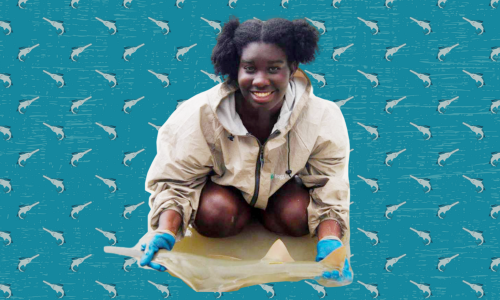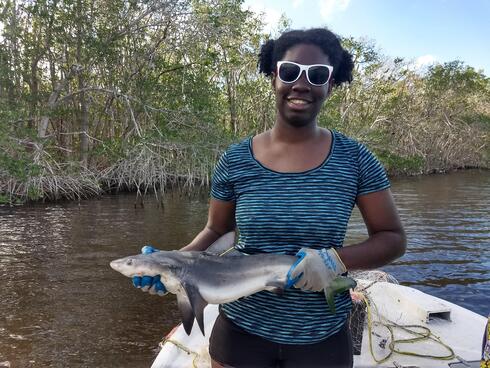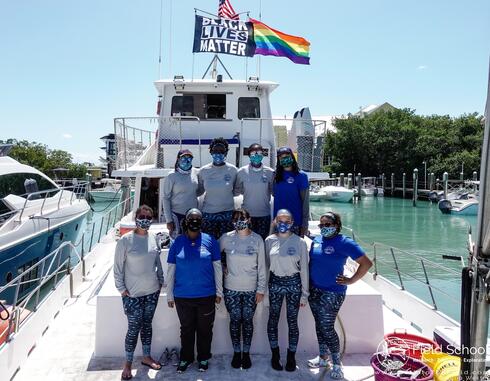Barely a year into its existence, MISS is already making strides. Following an incredibly successful fundraiser, MISS began providing workshops for budding scientists, as well as advocating for paid internships and language accessibility, facilitating a mentorship program, and fostering a tight-knit community that supports its members on their career path in shark sciences. Graham hopes that 20 years from now, there is no longer any need for organizations like MISS because the science field will be inclusive and equitable for people from groups that currently face barriers.
Fighting for inclusion of underrepresented groups
There is still much work to be done to make the sciences a more inclusive space. Earlier this year, Graham was a key organizer of the POSEA Conference for underrepresented communities in Marine Sciences (the name is a play of words on the acronym POC, which stands for ‘people of color’). Teaming up with other organizations led by underrepresented groups, Graham worked to provide a welcoming and enriching space for scientists from diverse backgrounds to showcase their research and discuss their experiences in the field. Unfortunately, the organizing team was barraged with disapproving and even racist reactions, with someone going as far as to submit a hate-speech filled abstract.
“Those were a rough few weeks,” Graham said. “We were even worried that the conference might get infiltrated.” To shield the team from seeing all the hateful messages, leaders established a process by which supportive allies filtered those out. Thankfully, the conference proceeded smoothly, receiving international attention and overwhelmingly positive feedback. There are already plans for a 2022 iteration.
Experiences like this are why Graham is determined to persevere in her work as a science communicator, social justice activist, and advocate for inclusion and equity in marine science. She plans to use the funds from the Conservation Leadership Award for her research on smalltooth sawfish in Tampa Bay. She sees great opportunities for education on sawfish too, and hopes that increased public awareness of the plight of the species can lead to much better management of its Tampa Bay population.
“I hope Jasmin will bring a perspective that enriches the world of conservation and WWF,” says Alejandro Pérez, WWF’s Senior Vice President of Policy and Government Affairs who served on this year’s award selection committee. “By recognizing her, WWF sends a signal that we value her achievements as an innovative researcher, and also her views as an advocate for communities that not always are fully represented in the environmental field.”
To hear more about Jasmin and her work, tune in to our virtual conversation with her in December on our YouTube and Facebook channels. For media inquiries of Jasmin, please message her through her contact form.
Read about our previous Conservation Leadership Award winners.













Add new comment